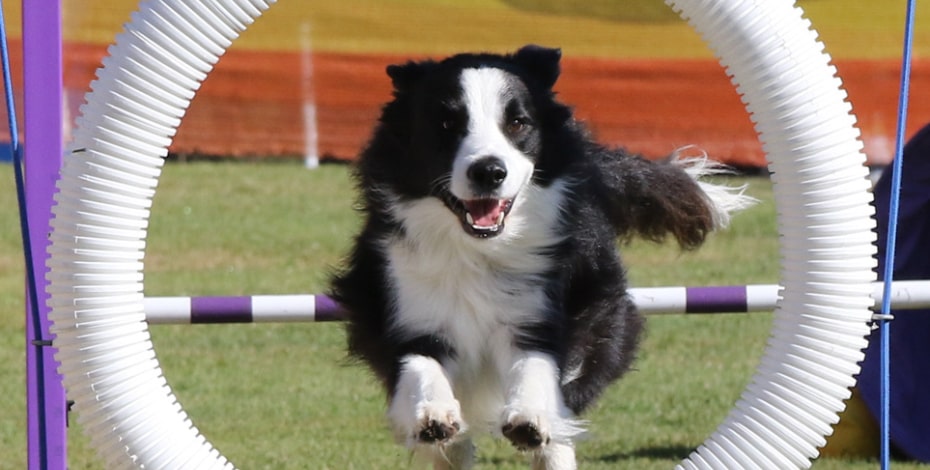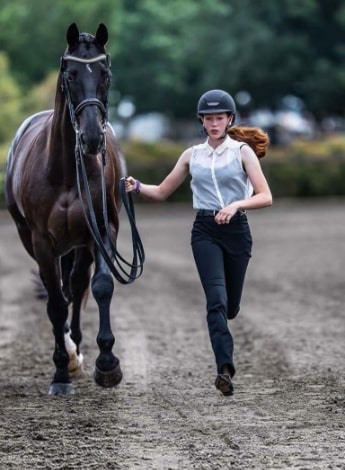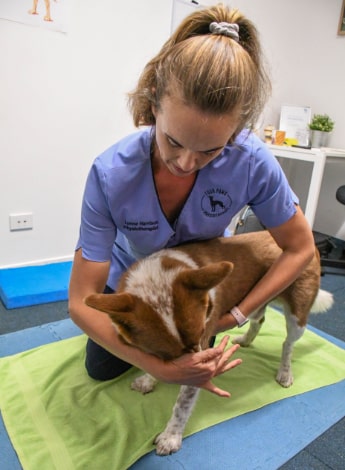
Animal physiotherapy campaign off and racing

As animal lovers across the globe prepare to celebrate World Animal Day on 4 October, a new campaign to promote animal physiotherapists to the profession, veterinarians, insurers and consumers is in full swing. A conversation with APA Animal group chair Lynne Harrison about looking after the health of Australia’s pets and sporting animals.
In the same way a physiotherapist might refer a patient on to see a women’s health physiotherapist or a specialist musculoskeletal physiotherapist, peer support for animal physiotherapists is just as important.
And it can start with a simple conversation about the ability for physiotherapy to benefit every member of the family—even the four-legged ones, says Lynne Harrison.
Lynne, who holds a master’s degree in Veterinary Physiotherapy and was the Queensland chair of the APA Animal group before becoming its national leader in January last year, is helping drive the Animal group’s new internal and external advocacy strategy to promote qualified animal physiotherapists to a range of consumers—starting directly with members of the physiotherapy profession.
‘We are working hard to inform the profession about what we do, because many members have no understanding what animal physiotherapy entails.
'So we’re trying to inform our own profession and promote that we offer physiotherapy assessment and treatment of every animal,’ Lynne says.
‘Physiotherapy is not only for people, but also provides essential rehabilitation and treatment for animals to improve their quality of life and prevent injuries.’
As with humans, physiotherapists help reduce pain, improve function and mobility and prevent recurrence of injury in animals.
Animal physiotherapists predominantly work with horses and dogs, and treat pets and working or performance animals.
Physiotherapists working with animals offer the same skills and multidisciplinary care as in human healthcare, resulting in better outcomes for animals following surgery, injury and neurological events.
These professionals also bring improved quality of life to elderly animals and those undergoing palliative treatment.

Horse and rider: Campari and Charlotte Waterman (image: Charlotte Waterman).
Lynne says having human physiotherapists show their support for animal physiotherapists can be as simple as printing off an A4-sized poster about animal physiotherapy and displaying it in clinics or waiting rooms where patients will see it.
Click here for a suite of resources about animal physiotherapy as well as printable posters.
‘We work in very much the same way as you would do within musculoskeletal physiotherapy with humans.
'We see a lot of musculoskeletal injuries and neurological patients, as well as orthopaedic patients,’ Lynne says.
‘And when needed, we perform respiratory physiotherapy with some of the smaller animals who are experiencing respiratory problems, particularly those in specialist centres.
‘But we also work with the horse/rider combination; we’re very much working with athletes in the same way as sports physios work with athletes of all levels.
'We cater for everything from your low-level trail riding horse and pony club horse and rider, to your high-level, national/international-level riders and performance horses,’ Lynne says.
‘There’s no other sport where you have two living beings so interwoven with how they’re moving, as you do with horse and rider.
'And, as animal physiotherapists who are also qualified human physiotherapists, we’re in one of the only professions that can work with both elements of that horse/rider combination.’
Part of the group’s dual approach to promoting animal physiotherapy is external engagement with the veterinary industry to educate it about referring to qualified animal physiotherapists, Lynne says.
The APA is concerned that some animal practitioners claiming to be physiotherapists may not hold formal qualifications or have undertaken any formal, recognised training.

Lynne Harrison at work (image: Kelly Gordon).
‘Consumers have a right to know that practitioners calling themselves physiotherapists are just that.
'They should be confident that they are receiving physiotherapy from a qualified professional who is providing the best care,’ Lynne says.
‘It’s really important that clients seek professionals who are clinically trained and who will work as part of a multidisciplinary team to give the best care to your animal.’
Lynne says that historically, vets have always covered the broad spectrum of care, doing everything from diagnostics and medical and surgical management to basic rehabilitation, which she says isn’t necessarily evidence based.
‘Up until recently, veterinarians have been reluctant to have others come into that veterinary sphere, primarily due to the number of untrained individuals providing services to patients.
'What we’re trying to do with the external advocacy is work with the veterinary profession by promoting physiotherapy performed by qualified animal physiotherapists, and the benefits of working as part of a multidisciplinary team.
'Across the country, we now have great working relationships with many veterinarians, but more work needs to be done to ensure there is seamless patient care.’
The APA is also calling on pet insurers to include animal physiotherapy cover in their policies, as most don’t.
‘Animal owners should carefully scrutinise all pet insurance policies to ensure they stipulate their pet or working animal will receive care from Ahpra-registered physiotherapists with postgraduate animal physiotherapy training,’ Lynne says.
‘Whether they are high-performance competitors, work animals or much-loved family pets, all animals should be treated by the most qualified experts.’
The APA supports the vital role of animal physiotherapists and calls on veterinarians to refer to qualified allied health professionals to ensure the most appropriate and skilled treatment for all animals.
The APA has released a position statement to coincide with World Animal Day.
Click here to read.
Main image: animal physiotherapists treat pets and working or performance animals (image: Sonia Petrack).
© Copyright 2024 by Australian Physiotherapy Association. All rights reserved.





